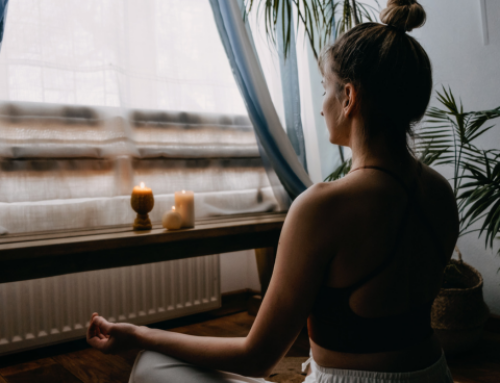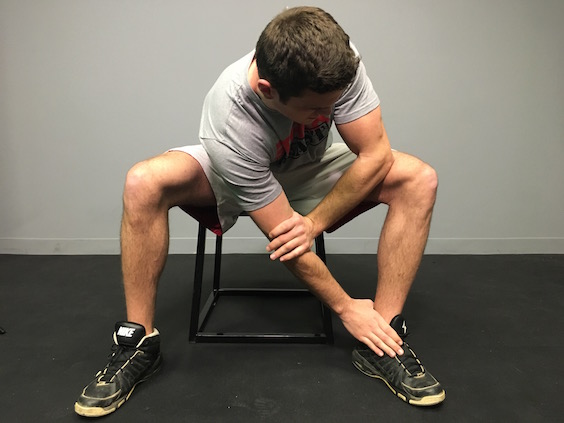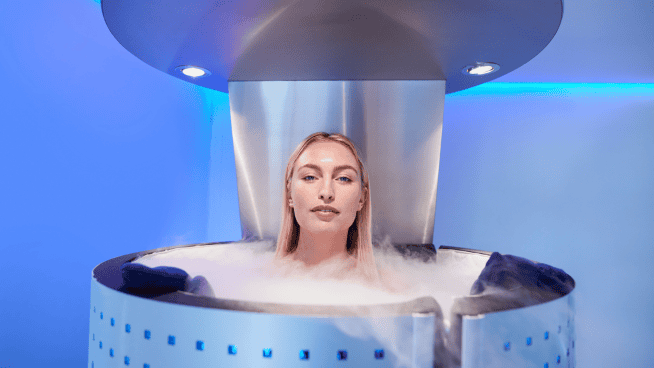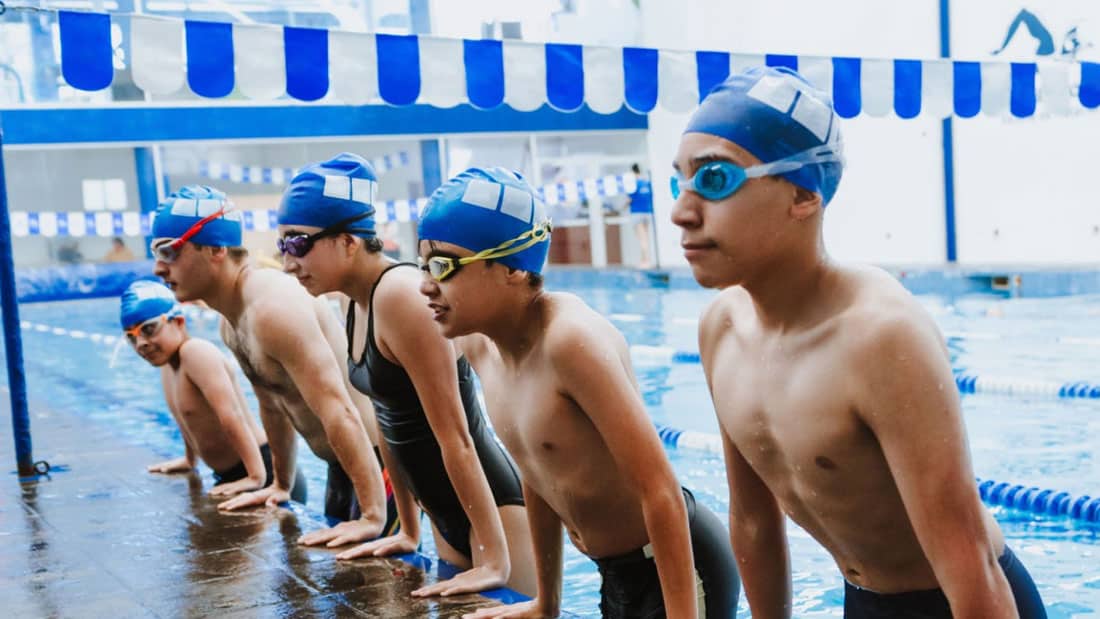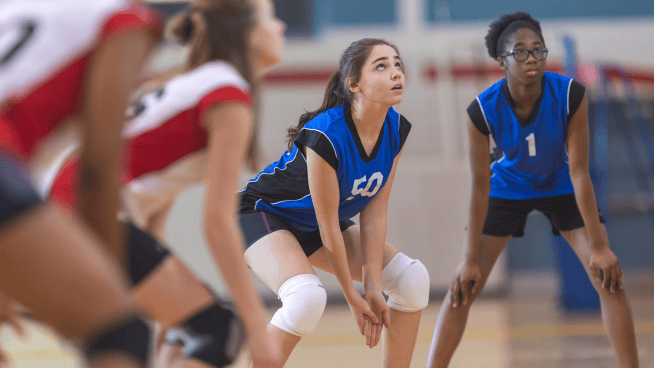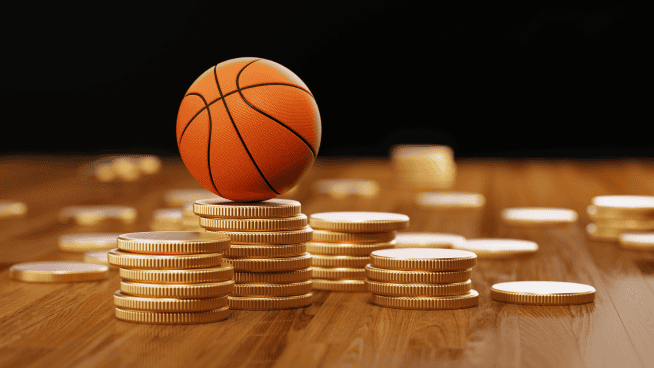Benefits of Sleep Include Better Athletic Performance
The best part of exercising? The results. You put in all the blood, sweat and tears for weeks or months, and finally you get bigger, faster and stronger. Or maybe not. It can be frustrating and discouraging when you invest lots of time and money without getting the benefits you expect.
More sleep may be the answer. Sleep is one of the most underutilized strategies for enhancing athletic performance.
You can rely on exercise, nutrition or supplementation, but without proper sleep, your results will be significantly diminished.
RELATED: Does Loss of Sleep Have Same Effects as Sports Head Injuries
A 2011 study investigated the effects of additional sleep on 11 male college basketball players. After the sleep extension, the players’ agility sprint improved by 0.07 seconds, their free-throw percentage increased by 9 percent, and their 3-point field goal percentage improved by 9.2 percent. Subjects’ self-ratings during and after practices improved from 6.9 to 8.8, and self-ratings during and after games improved from 7.8 to 8.8. This shows improvements in physicality, concentration and confidence.
Research has shown a relationship between sleep, skill memory and performance enhancement, concluding that sleep restriction poses a risk to maintaining skills learned during practice. The finding confirms that sufficient sleep is important to ensure optimal performance in athletes.
If your busy life makes it nearly impossible to get 10 hours of sleep, a simple nap can make a difference between success and failure.
RELATED: Why Your School Should Let You Sleep In
A 2007 study had 10 men nap or sit quietly for 30 minutes after a night of only four hours of sleep. Thirty minutes after the nap, researchers recorded alertness, short-term memory, heart rate, reaction time, grip strength and 20-meter sprint times. They found that the nap lowered the men’s heart rate and sleepiness, while improving their alertness, short-term memory, accuracy and reaction time. Sprint times decreased by 0.093 seconds.
Quality sleep leads to quality change. It is the cheapest performance enhancement aid by far. Plan your recovery time and schedule your sleep. Look forward to resting after exercise. Picture your body healing and your batteries charging. You will be able to push yourself harder, change faster and enjoy the process more.
Sleep well.
RELATED: Boost Your Sleep and Boost Your Game
References:
Mah, CD., et al. 2011. “The effects of sleep extension on the athletic performance of collegiate basketball players.” Sleep, 34 (7) 943-950.
Rosekind, M. 2008. “Peak performance requires optimal sleep and alertness.” Olympic Coach, 20 (2), 4-7.
Sleivert, G. 2013. Performance point: “Sleep your way to better performance.” wvAv.csipacific.ca/Images/ PerfPoints/PP_Sleep(GSIeivert).pdf; accessed Aug. 2013.
Walker, M.P., & Stickgold, R. 2006. Sleep, memory, and plasticity. Annual Review of Psychology, 57, 139-66.
Waterhouse, J., et al., 2007. The role of a short post-lunch nap in improving cognitive, motor, and sprint performance in participants with partial sleep deprivation. Journal of Sports Sciences, 25 (14), 1557-66.
[cf]skyword_tracking_tag[/cf]RECOMMENDED FOR YOU
MOST POPULAR
Benefits of Sleep Include Better Athletic Performance
The best part of exercising? The results. You put in all the blood, sweat and tears for weeks or months, and finally you get bigger, faster and stronger. Or maybe not. It can be frustrating and discouraging when you invest lots of time and money without getting the benefits you expect.
More sleep may be the answer. Sleep is one of the most underutilized strategies for enhancing athletic performance.
You can rely on exercise, nutrition or supplementation, but without proper sleep, your results will be significantly diminished.
RELATED: Does Loss of Sleep Have Same Effects as Sports Head Injuries
A 2011 study investigated the effects of additional sleep on 11 male college basketball players. After the sleep extension, the players’ agility sprint improved by 0.07 seconds, their free-throw percentage increased by 9 percent, and their 3-point field goal percentage improved by 9.2 percent. Subjects’ self-ratings during and after practices improved from 6.9 to 8.8, and self-ratings during and after games improved from 7.8 to 8.8. This shows improvements in physicality, concentration and confidence.
Research has shown a relationship between sleep, skill memory and performance enhancement, concluding that sleep restriction poses a risk to maintaining skills learned during practice. The finding confirms that sufficient sleep is important to ensure optimal performance in athletes.
If your busy life makes it nearly impossible to get 10 hours of sleep, a simple nap can make a difference between success and failure.
RELATED: Why Your School Should Let You Sleep In
A 2007 study had 10 men nap or sit quietly for 30 minutes after a night of only four hours of sleep. Thirty minutes after the nap, researchers recorded alertness, short-term memory, heart rate, reaction time, grip strength and 20-meter sprint times. They found that the nap lowered the men’s heart rate and sleepiness, while improving their alertness, short-term memory, accuracy and reaction time. Sprint times decreased by 0.093 seconds.
Quality sleep leads to quality change. It is the cheapest performance enhancement aid by far. Plan your recovery time and schedule your sleep. Look forward to resting after exercise. Picture your body healing and your batteries charging. You will be able to push yourself harder, change faster and enjoy the process more.
Sleep well.
RELATED: Boost Your Sleep and Boost Your Game
References:
Mah, CD., et al. 2011. “The effects of sleep extension on the athletic performance of collegiate basketball players.” Sleep, 34 (7) 943-950.
Rosekind, M. 2008. “Peak performance requires optimal sleep and alertness.” Olympic Coach, 20 (2), 4-7.
Sleivert, G. 2013. Performance point: “Sleep your way to better performance.” wvAv.csipacific.ca/Images/ PerfPoints/PP_Sleep(GSIeivert).pdf; accessed Aug. 2013.
Walker, M.P., & Stickgold, R. 2006. Sleep, memory, and plasticity. Annual Review of Psychology, 57, 139-66.
Waterhouse, J., et al., 2007. The role of a short post-lunch nap in improving cognitive, motor, and sprint performance in participants with partial sleep deprivation. Journal of Sports Sciences, 25 (14), 1557-66.



